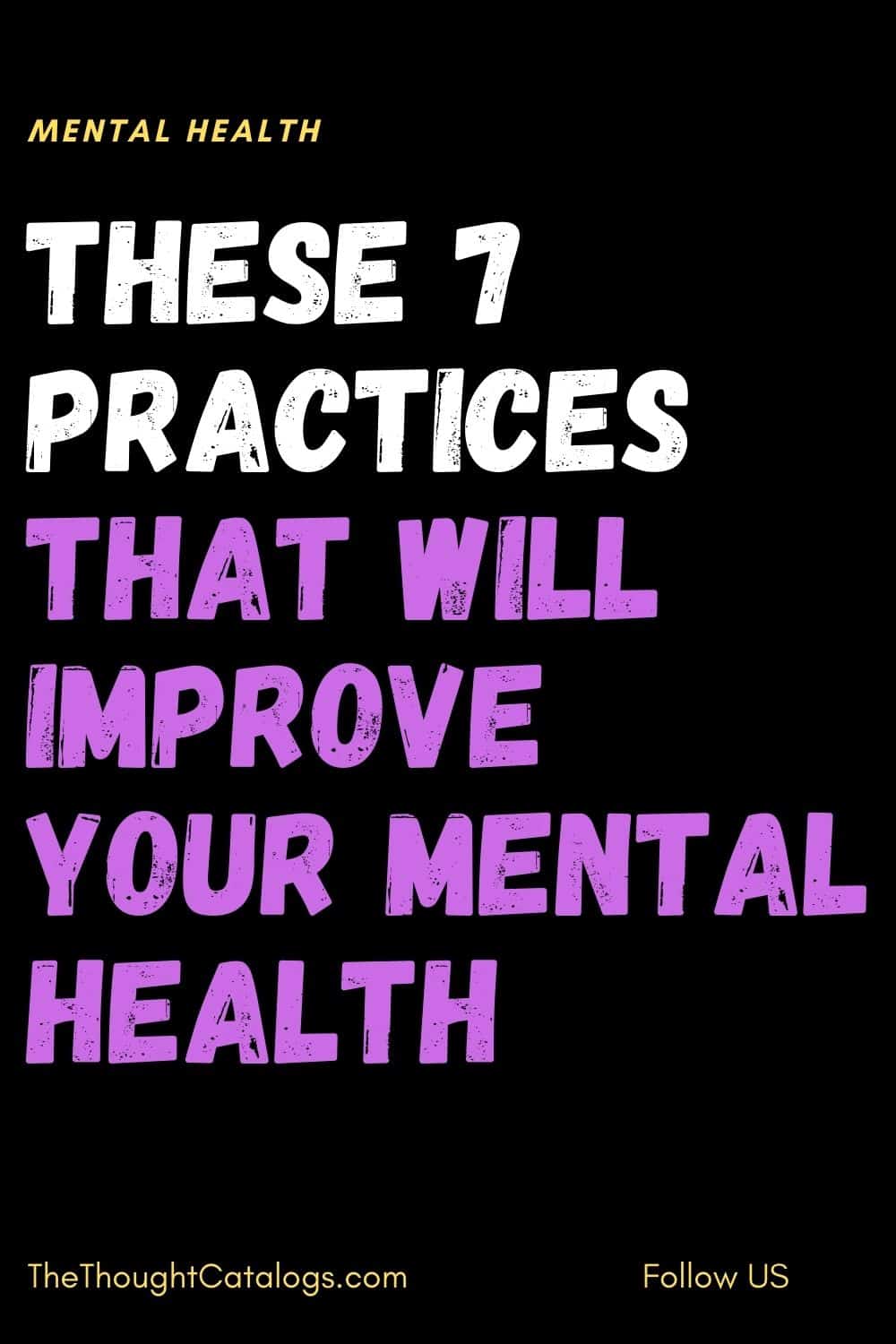These 7 Practices That Will Improve Your Mental Health

Our mental health plays a vital role in our overall well-being. Taking care of our mental health is just as important as taking care of our physical health. In this article, we will explore seven practices that can significantly improve your mental health. By incorporating these practices into your daily life, you can cultivate a positive mindset, reduce stress, and enhance your overall happiness and well-being.
Introduction
In today’s fast-paced world, it’s easy to neglect our mental health amidst the hustle and bustle of everyday life. However, it is essential to prioritize our mental well-being to lead a fulfilling and balanced life. Let’s dive into seven practices that can have a profound impact on improving your mental health.
Practice 1: Prioritize Self-Care
Self-care is crucial for maintaining good mental health. Take time out of your busy schedule to engage in activities that bring you joy and relaxation. This could include reading a book, taking a warm bath, going for a walk in nature, or simply spending quality time with loved ones. By prioritizing self-care, you recharge your mind and body, allowing you to better cope with life’s challenges.
Practice 2: Maintain a Balanced Lifestyle
Maintaining a balanced lifestyle is essential for mental well-being. Ensure you get sufficient sleep, eat a nutritious diet, and avoid excessive consumption of alcohol or drugs. Balancing work, relationships, and leisure activities is crucial to prevent burnout and promote overall mental wellness.
Practice 3: Cultivate Positive Relationships
Nurturing positive relationships is vital for good mental health. Surround yourself with supportive and uplifting individuals who bring out the best in you. Share your thoughts and feelings with trusted friends or family members who can provide a listening ear and offer guidance when needed. Cultivating healthy relationships fosters a sense of belonging and boosts your emotional well-being.
Practice 4: Practice Mindfulness and Meditation
Mindfulness and meditation are powerful practices for improving mental health. Take a few minutes each day to engage in mindfulness exercises or meditation. These practices help you stay present, reduce stress, and promote a calm and focused mind. By incorporating mindfulness into your routine, you develop greater self-awareness and cultivate a positive mindset.
Practice 5: Engage in Regular Exercise
Regular exercise not only benefits your physical health but also has a significant impact on your mental well-being. Engaging in physical activities releases endorphins, which are known as “feel-good” hormones. Whether it’s going for a run, practicing yoga, or playing a sport, find an exercise that you enjoy and make it a regular part of your routine. Exercise can help reduce symptoms of anxiety and depression while boosting your mood and self-confidence.
Practice 6: Manage Stress Effectively
Stress is a common part of life, but managing it effectively is essential for maintaining good mental health. Find healthy coping mechanisms to deal with stress, such as deep breathing exercises, journaling, or engaging in hobbies you enjoy. Setting boundaries, prioritizing tasks, and seeking support when needed can also help you manage stress more effectively and maintain a positive mindset.
Practice 7: Seek Professional Help when Needed
If you’re experiencing persistent or severe mental health issues, seeking professional help is crucial. A mental health professional can provide guidance, support, and therapy tailored to your specific needs. Don’t hesitate to reach out for help when you need it. Remember, seeking assistance is a sign of strength, and it can significantly improve your mental well-being.
Conclusion
Improving your mental health is a journey that requires commitment and practice. By incorporating these seven practices into your daily life, you can foster a positive mindset, reduce stress, and enhance your overall mental well-being. Prioritize self-care, maintain a balanced lifestyle, cultivate positive relationships, practice mindfulness and meditation, engage in regular exercise, manage stress effectively, and seek professional help when needed. Remember, your mental health matters, and by taking care of it, you can lead a happier, more fulfilling life.
FAQs
1. How long does it take to see the benefits of practicing these mental health practices?
The benefits of these practices can vary from person to person. However, with consistent effort and dedication, you may start noticing positive changes in your mental well-being within a few weeks or months.
2. Can these practices help with specific mental health conditions?
While these practices can certainly contribute to overall mental well-being, it’s essential to consult with a mental health professional for specific conditions. They can provide a tailored approach to address your individual needs.
3. Are these practices suitable for everyone?
Yes, these practices can be beneficial for individuals of all ages and backgrounds. However, it’s essential to adapt them to your specific circumstances and consult with a healthcare professional if you have any underlying health concerns.
4. How can I make these practices a part of my daily routine?
Start by incorporating one practice at a time into your daily routine. Gradually build up and find a balance that works for you. Consistency is key to reaping the long-term benefits.
5. Is it necessary to practice all seven practices, or can I choose a few?
While practicing all seven practices can have a comprehensive impact on your mental health, it’s perfectly fine to choose the ones that resonate with you the most. Experiment and find the practices that bring you the greatest benefit and make them a part of your routine.




